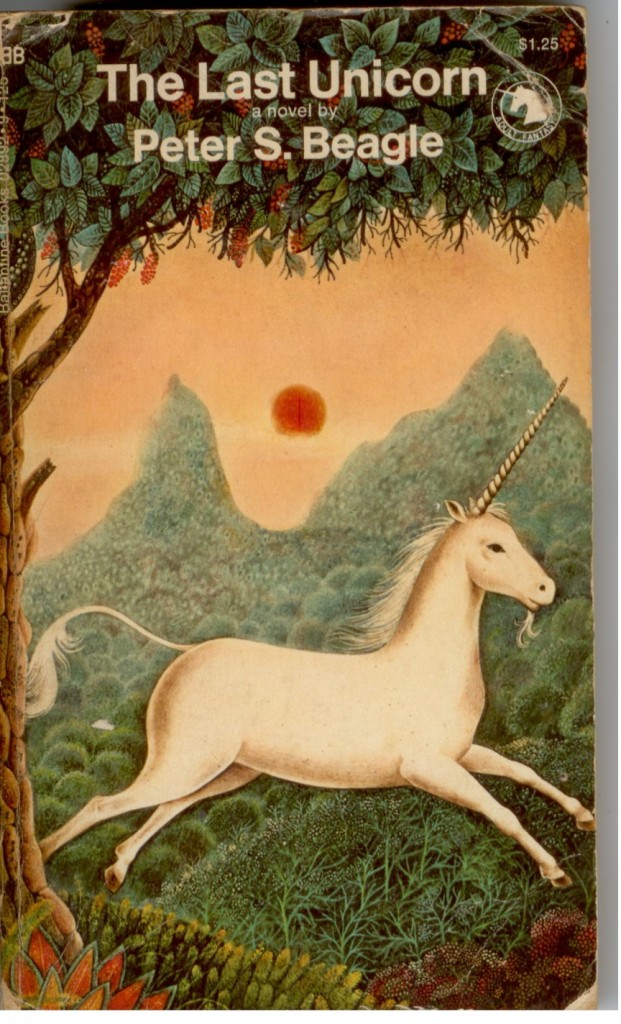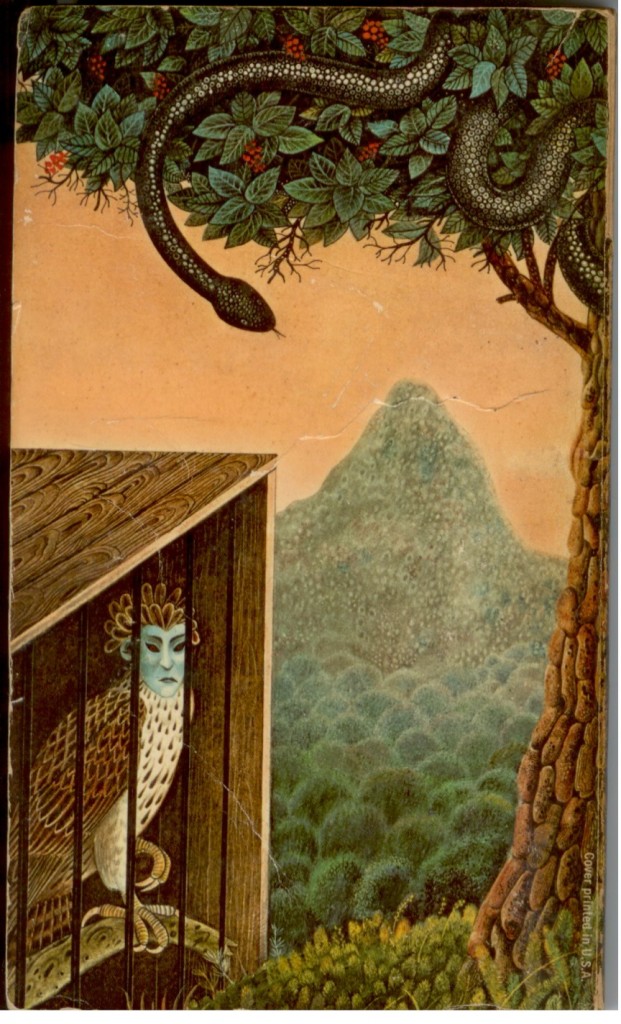It’s Day 3 of our week-long blogfest celebrating The Star Shard — both its original incarnation as a serialized story in Cricket and as a just-released novel from Houghton Mifflin Harcourt. Ongoing notes related to this story are appearing throughout the week both here and on the blog of Emily Fiegenschuh, the artist who brought the story to life in Cricket. Her blog is at http://fabledearth.blogspot.com/.
As Cymbril’s adventures take her through the Lower Groag Swamp (also known as Weepwallow), a terrible place of oozy mud and gleaming eyes in the dark, she is terrorized by the harpy.
Harpies come to us from ancient Greek mythology. There, they usually appear in a group as dreadful sisters, the daughters of Poseidon and Gaea (or else, some say, the daughters of Thaumas and Electra). In his Dictionary of Classical Mythology, J.E. Zimmerman tells us, “They were fierce, filthy, winged monsters, with the faces of women, bodies of vultures, and sharp claws. They left a loathsome stench, snatched and defiled the food of their victims, carried away the souls of the dead, served as ministers of divine vengeance, and punished criminals. They were sent by Hera to plunder the tables of Phineus . . . They plundered Aeneas on his way to Italy, and predicted many calamities that would overtake him. (Aeneid iii).”
Greek myth gives names to the Harpies (or Harpyiae), too: Aello, Celaeno, and Ocypete. In the works of Homer, only one appears and is called Podarge. In Theogony, Hesiod mentions two Harpies and calls them Aello and Ocypete.
Poor, blind King Phineus could not eat, though a banquet was spread before him; these filthy sisters kept swooping out of the sky and snatching the food away, spoiling it. Fortunately for Phineus, his brothers-in-law Zetes and Calais (sons of the North Wind) came to his rescue, driving the Harpies away. He even got his sight back, a reward from the gods for advising the Argonauts on how to get past the Clashing Rocks. So a great many tales are interrelated . . .
The harpy in The Star Shard does not snatch away food from people. Rather, she snatches away Loric after narrowly missing Cymbril — and seems interested in them as food for herself, though we really don’t know what her intentions are. Certainly they’re no good.
She is a harpy with a small “h,” which probably suggests that she is not one of the original sisters spoken of by the Greeks. Perhaps this swamp-dwelling harpy (in the way that Shelob and the great spiders of Mirkwood are descended from Ungoliant) is a distant descendant of the Harpyiae. No longer bent on any divine errand, perhaps not capable of speech at all, she is a thing of malice and hunger.
In Cymbril’s world, harpies are well-known enough that the men of the Rake recognize the creature. Loric dreads her greatly and senses her presence before she appears.
For some good looks at this harpy of Weepwallow, please visit Emily’s gallery for “The Star Shard” at www.e-figart.com. Be warned, though: the monster is properly horrifying!
How did the harpy find her way into my story? Well, as a teenager, I read Peter S. Beagle’s book The Last Unicorn. It’s a beautiful, enchanting tale that has, since then, occupied my small shelf of favorites. It features a very, very, very scary harpy. (At least I remember her that way; I haven’t read the book since I was a teenager.) The cover art was by Gervasio Gallardo. I’ll show you both the front cover and the back, with his rendering of the harpy.
And here’s the back cover:
And there you have it. Please stop in again tomorrow as STAR SHARD WEEK continues!

